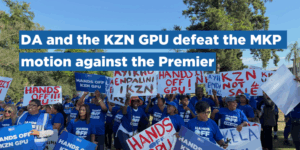About 720 urban farmers from different areas have resumed their agricultural training after their course was temporarily placed on hold and their schedule revised following the latest Adjusted Alert Level 4 regulations. The City of Cape Town’s Mayoral Committee Member for Urban Management, Alderman Grant Twigg, visited participants at various sites on Friday, 16 July.
With the rampant unemployment and hunger that persist in our communities as a result of various lockdown levels due to Covid-19, the Urban Management Directorate went back to the drawing board to revise its initial Urban Agriculture Training Programme, in line with the current Alert Level 4 Covid-19 regulations.
‘The revised training programme commenced on Monday, 12 July 2021, and we took great care to put measures in place to safeguard participants. Food security cannot be put on the back burner and there is a real need within our communities,’ said Alderman Grant Twigg, Mayoral Committee Member for Urban Management.
Some of the processes that the City implemented to safeguard participants includes the following:
- One-on-one practical training at the beneficiaries’ homes.
- Six beneficiaries will be trained per day which means that 80 beneficiaries will be trained per week.
- Four beneficiaries will be trained by one facilitator at a time.
- Two hours of training will be conducted per beneficiary
Training topics include:
- Understanding farming requirements and uses and farm elements.
- Preparation of organic compost.
- Natural pests, disease control and organic sprays.
This phase of training will run from 12 July 2021 until 30 July 2021.
‘With the disturbing scenes of civil unrest and the total disregard for the law under the guise of unemployment and poverty, urban farming is beneficial to society as it can be applied in our daily lives for the consumption of food,’ said Alderman Twigg.
At the end of the training, an evaluation will be conducted with the participants to achieve the following:
- A better understanding of the agricultural environment.
- The importance of planning, especially regarding farming operations.
- Understanding land as an economic unit and its role to sustainable farming.
- The knowledge and skills required to conduct sustainable gardening or farming.
‘We cannot sit back and do nothing. As a caring City, we will provide tangible alternatives to our communities like this urban farming initiative being rolled out, which will allow residents to start their own food production units in their backyards,’ said Alderman Twigg.




